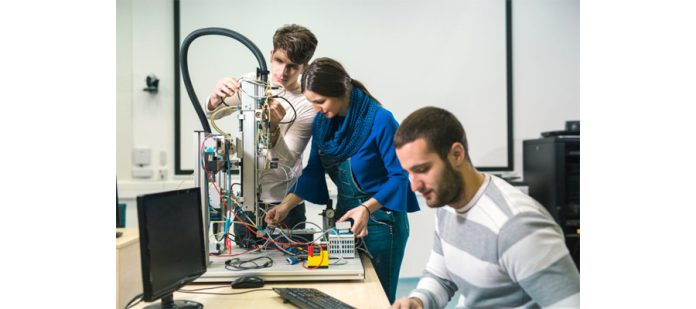- Forecast: in 2040 half of the industry’s turnover will come from new value chains
- Maintaining competitive position demands productivity growth of 150%
- Industry has to transform to 100% sustainability in operations
The fast-paced development of technologies like AI, Quantum and Photonics, as well as the societal challenges in the areas of sustainability, health and safety, create new opportunities for the Dutch high-tech industry. Capitalizing on these opportunities requires a cooperative strategy between businesses, knowledge institutes and the government, as well as turning the National Growth Fund into a structural financial R&D instrument. TNO stated this in a paper that was published today. Arnaud de Jong, Managing Director TNO High Tech Industry: “The Dutch high-tech industry can potentially produce a number of new ASMLs in de coming decades, but that will require a collaborative approach based on a powerful innovation agenda.”
Transformation
With a turnover of 80 billion euros in 2021, the high-tech industry is an important contributor to the earning capacity of the Netherlands. TNO looked into the possibilities for the branch to maintain its societal value in the future. Expectations are that in 2040 some 50% of turnover will be generated in new value chains, such as laser satellite communication and equipment for sustainable energy. In order to maintain the Dutch competitive position in high tech, the industry should increase its productivity by 150% and transform its operations towards 100% sustainability. To increase our strategic autonomy, TNO believes it is essential we build these value chains, focusing our innovation policy for the longer term.
National high-tech strategy
This transformation poses a number of new challenges. The Netherlands as a whole should get better at accelerating market adoption of innovations and new technologies, for instance through start-up and scale-up programs and targeted international cooperation. Additional policies to attract talent will have to be set up, an important aspect of which would be the human capital agenda that recruits people based on skills instead of education level. De Jong: “To facilitate companies in high-tech in these challenges, we need a National High-Tech Strategy that builds on the National Technology Strategy. We invite high-tech businesses, knowledge institutes and the government to develop this strategy together.”
Funding of R&D
TNO also looked at the Dutch innovation policy and how research is funded. Until around 2030 the Netherlands will invest heavily in the transformation of the high-tech industry, mainly through the National Growth Fund programs. This National Growth Fund will boost the industry in the years to come, but according to TNO a strategic vision on the industry is lacking. For instance, the European Chips Act will be implemented in the Netherlands shortly, but there is no clear implementation strategy, which is essential if we want to realise breakthroughs in key technologies such as advanced materials, quantum and nano-technology.







